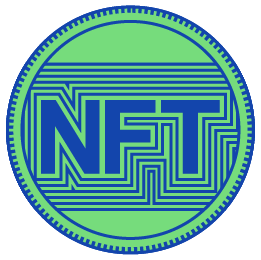How NFTs can help artists get funding for music projects
Many people talk about NFTs in music. As an artist, have you ever wondered how you could use them?
Independent musicians are almost always looking for opportunities to get their music heard and advance their careers. The difficulty usually comes from securing funding for music projects. It may not surprise you to hear that NFTs may be the answer.
If you’re not sure what non-fungible tokens (NFTs) are, don’t panic! You don’t need a very deep and technical understanding of them to benefit from using them. Today, there are many artists who have unlocked income streams and deepened their connection with the public through NFT projects.
Sound interesting yet? To learn how you can leverage this exciting new technology to fund creative projects, just keep reading.
What exactly are NFTs?
First, let’s define what NFTs are.
NFTs are digital assets that are unique and cannot be replicated. They are created using blockchain technology, which makes them immutable and unique. NFTs can represent anything unique and valuable, such as artwork, collectibles, and even music.
Some high-profile NFT projects and celebrities have led to NFTs making people a lot of money. While not all NFTs are going to be worth thousands of dollars, they can still be lucrative. If you’re an independent musician, there are ways NFTs can lead to funding for music projects and endeavors.
Traditional income streams
Before we dive into the available ways NFTs can generate income, let’s look at some of the classics. There are a number of exciting ways musicians can make money.
Live performance
Independent musicians can earn money by performing at gigs, concerts, festivals and other live events. They can charge for tickets, merchandise, and sometimes even a percentage of the profits from the venue. This is a great way for musicians to connect with their fans and build a loyal following.
Goods and physical sales
Who remembers cassettes? No? Okay, what about CDs? Even vinyl records have made a resurgence in the last decade or so. In fact, vinyl sales beat CD sales for the first time since 1987 just last month.
Music fans buy physical releases for several reasons. Some prefer the detailed sound, while others enjoy the ritual of gently placing a needle on a record to hear it. These habits allow artists to still make money through physical sales of their music. But getting these records produced and distributed isn’t always available to newer artists.
Another way for independent musicians to make money is through the sale of merchandise. This includes T-shirts, hats, posters and other items with the band’s logo or artwork. You can often find this item being sold at live shows, or on the artist’s website or Bandcamp.
Digital streaming revenue
These days, digital streaming is how a large number of people consume music. The rise of platforms such as Spotify and Apple Music has meant that artists can get people from all over the world to listen to their music. Every time songs are streamed, royalties are generated for that artist.
Different platforms have slightly different revenue models and the amount of revenue generated depends on a few factors. But once an artist has distributed their music to streaming platforms, revenue can passively trickle in over time.
NFTs as funds for music projects
Now that we’ve gone over the more traditional ways musicians can make money, it’s time to take a look at NFTs. As a relatively new technology, it is not clear to everyone how they can be exploited. In the interest of empowering artists to make the most of their careers, we want to provide some insight.

There are many exciting potentials to unleash here. Since NFTs can be attached to almost any asset, artists can get very creative with how they use them. A music NFT is an NFT that is related to music in some way. Here are some interesting examples:
Exclusive content
When you buy an album, it’s always exciting to get some extra bonuses. As a fan, you feel valued and part of an exciting club. Musicians can give away exclusive content, like a new music video or special edition artwork, when a fan buys the NFT version of their album.
Unique experiences
Musicians can offer exclusive experiences like virtual meet-and-greets, private concerts, or even recording sessions like NFTs. Fans can buy these NFTs and the musician can make money while providing unique experiences for fans.
Limited edition music
When you release a new single, artists may release a limited edition B-side to accompany that release. By making a limited number of these B-side NFTs available, excitement and anticipation is generated among fans. If sold at auction, the demand and popularity of an artist can drive the price of the NFTs up.
With fewer middlemen involved, artists get to see a much bigger cut of those earnings.
Fractional Royalties NFTs
The problem many artists face with digital streaming royalties is the waiting aspect. In many cases, months must pass before a significant amount of streaming revenue is generated. For artists who need a large infusion of income immediately, a fraction of their streaming royalties can be shared as NFTs.
By doing this, fans can buy a piece of history, while earning a percentage of a song’s streaming royalties alongside the artists. So, instead of waiting for a track to generate revenue, artists can enjoy revenue generated from the sale of that royalty percentage. No more waiting to buy the new synth, or get the old faithful tour van repaired.
Access NFT earnings as funding
Once an artist has made money from NFTs, how can they use it as funding for music projects?
NFTs are bought and sold on the blockchain. This means that artists can have full control over what they sell and for how much. It also means that any revenue generated goes straight to them, as smart contracts ensure that transactions are carried out seamlessly.

Of course, it all depends on the artist’s setup. They may have contracts elsewhere that distribute some NFT revenue to any record labels or publishers involved. But for independent musicians, any money they make from NFTs can go straight into their own pockets.
As a result, smaller artists gain access to new revenue streams. This money earned from NFTs can be used to fund future music projects, such as hiring musicians or studio time. Or it can be used to fund a live performance tour. It can even be used just for the artist to make a living, so they have more time to focus on creating, instead of working elsewhere.
Ends
If you’re an independent artist, hopefully you now have some ideas about new ways to secure funding for music projects. NFTs offer diverse and creative opportunities for artists to connect with audiences while increasing their earning potential.
You can sell an album as an NFT, create an exclusive token-gated fan club, or give away a cool experience via NFT. There are hundreds of possibilities. These types of NFTs are not exclusive to high-profile artists. If you have a community and fan base around you, you might be surprised how excited your audience gets about your music NFTs.
Considering converting your digital streaming royalties to NFTs? You must deploy it first! Sign up to RouteNote and share your music on the biggest streaming platforms for free.

